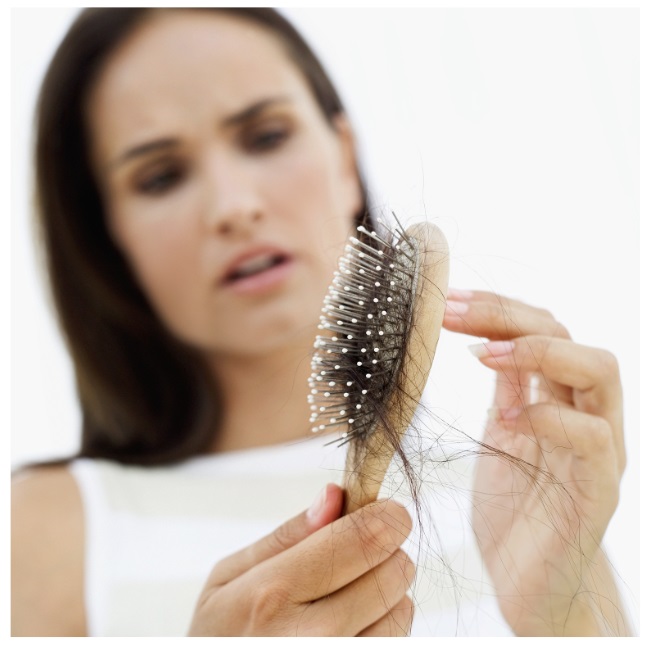
Women Connect

When Hair Loss Hits Home: Expert Answers to Your Questions
Whether it's sudden shedding or gradual thinning, hair loss can be frustrating, confusing—and even a little embarrassing to talk about. But the truth is, it’s incredibly common.
Over 50% of women will experience noticeable hair loss in their lifetime, according to the Cleveland Clinic.
We’ve heard from many in our Women Connect community who are navigating this issue.
Methodist dermatologist Tomas Huerta, MD, is here to help us address the top 5 questions women are asking about hair loss—from the causes and signs to solutions that work.
“Hair plays a huge part in our appearance and self-confidence,” Dr. Huerta says. “The sooner you seek help, the better your chances of preserving the hair you have. There's a lot of information—and misinformation—out there. A dermatologist can help you cut through the noise and find what truly works for you.”
-
In addition to age-related hair loss—which affects up to 80% of people over time—the most common cause Dr. Huerta sees is stress-related hair loss, known as telogen effluvium (TE).
This condition can be triggered by emotional or physical stress—from major life-changes to significant health issues. The body’s stress response causes more hair to shift into the resting phase, leading to noticeable shedding.
Autoimmune diseases and medications can also play a role, particularly in persistent or unusual cases. Though these are less common, they are important to consider in a thorough evaluation.
“Those four causes—age, stress, autoimmune disease, and medications—really cover all the hair loss that I generally see,” Dr. Huerta says.
“This can be really difficult,” Dr. Huerta says. Determining the type of hair loss usually requires a physical examination of the scalp by a dermatologist.
He recommends paying attention to symptoms like itching or pain, which can indicate an autoimmune or inflammatory condition.
“If you're having those symptoms, you should be seen right away.”
Dermatologists often begin by assessing whether the hair loss is scarring or non-scarring.
“Scarring means the hair follicles that are being lost are gone; they cannot come back,” Dr. Huerta explains. “The non-scarring form is where hair falls out but eventually can grow back, either on its own or with treatment.”
As a general rule, if hair shedding or thinning continues for more than a month, it’s time to get evaluated.
“Early evaluation can help preserve existing hair and prevent irreversible damage,” he says.
Scalp health plays a crucial role in supporting hair health. Dr. Huerta recommends simple but effective measures: avoid over-washing, over-drying or using harsh products. “You just want to maintain a good balance,” he says.
He encourages women to pay attention to their scalp: persistent dryness, bumps, or irritation are signs that something may be wrong and should be addressed promptly.
There’s no universal standard for how often to wash your hair—it varies by individual and hair type. The key is a routine that supports comfort and doesn't stress the scalp.
Rather than focusing on specific foods or supplements, Dr. Huerta emphasizes overall wellness.
“I’d always advocate for a healthy lifestyle—eating a well-balanced diet and whole foods, getting regular exercise. Being the healthiest version of yourself is going to help your hair.”
He notes that rapid weight loss, especially from newer weight loss drugs, can lead to temporary hair shedding.
“I have a lot of patients, especially with these new weight loss drugs, that lose a ton of weight and they'll get some transient hair shedding from that,” he says. “Fortunately, that hair will grow back.”
Ultimately, he adds, hair—like skin—is a reflection of your internal health. While genetics are a major factor, optimizing your overall well-being can improve hair resilience and quality.
One of the best-supported treatment options is minoxidil, which is available over the counter.
“It’s not without its drawbacks, but it definitely has efficacy,” Dr. Huerta says. “It’s a great hair-supportive medication. It improves the current health of the hair that you have.”
More advanced treatments, including oral medications or hormone-based therapies, should be managed by a doctor.
Dr. Huerta cautions against being swayed by overhyped products: “Unfortunately—or fortunately—a lot of businesses have recognized how emotional this issue is. So there are a lot of products and devices out there promising the Holy Grail.”
“I don’t have a problem with patients trying those,” he adds, “but I generally start them with medications that have sound medical evidence behind them. You can build from there.”
His advice is clear: “If you have concerns about your hair, the sooner you see someone, the better. You can save a lot of time and money by getting evaluated early—before trying a million different things.”
Have a friend or family member who would be interested in Women Connect?
Please forward this link so they can learn more: MethodistHospitalFoundation.org/WomenConnect
